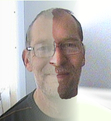Over many years I've found this to be so. It may sound like a bit of a cliche but frankly, it isn't!
Okay, I know, - we can all get carried away and I am no exception and wouldn't want to pretend to be for one minute, but strange things do happen from time to time and they do make you think!
The point I am making is that as a writer I feel you should embrace the opportunities that come your way, and real life experiences are the key . . you'll find you just can't lie!
When I stated writing I only gave myself one rule: I wouldn't write about anything I didn't feel comfortably enough about or qualified to do so. Writing should be about a combination of experiences and imagination . . what could be . . what might have been?
Sometimes in life strange things do happen, and I believe that usually it is for a reason, but that reason may not be clear to the individual at the time. It really doesn't matter if the boundary between fact and fiction becomes blurred so long as you are not selling it as anything else. This is the beauty of writing fantasy when it is embroidered with real facts, you can make your own rules, create your own structure,and tell your own story.
When I write it actually does always seems to begin from a 'strange' starting point, that is to say that maybe something just pops in there that gets the grey cells working, and half an hour later I wonder why! . . . it isn't always clear.
The best example I can give here is to use the analogy of classical music. In the strictly classical music form the composer always 'developed' the subject matter, that is to say the tune or, more accurately, the 'theme' was taken in one form or another and developed and grown into a sort of musical journey that would eventually arrive back at it's starting point. Well, that's how it is with literature, art, music, in fact any form of creative work has to stand this test . . it has to take the audience on a journey, - an experience that envokes an emotion. In classical music the composer will often just home in on one particular theme, or even phrase of the main theme to develop. When done well this can be so dramatic that one will never question the need for anything else to be included! If not done well you are left feeling cheated, . . unfulfilled . . as if something is missing!
This is art in it's purist form. now I'm getting a bit heavy here but this is what all artists of any genre should be striving towards.
My advice to any writer is to see it through. Create that tension, develop the characters, make your audience start to question all the possibilities, - don't make it obvious. But, at the end you need to to be able to explain that 'strange' thing, that little extra quirky bit that crept in there . . that moment when you saw the light, that moment when you knew you could make it count.
Strange things are happening' - (to quote a famous children's movie) - don't dismiss them, embrace them. We live in a time where perhaps, strange things are meant to happen. Where perhaps we are meant to question what is put in front of us. Only recently there was TV coverage of a strange occurrence that happened in December 1980. The facts are still not clear other than something went on in that forest that night! I spent a day there recently, it didn't turn out quite how I expected: you can read more about that experience I had at the end of the summer by following this link to:

 RSS Feed
RSS Feed
